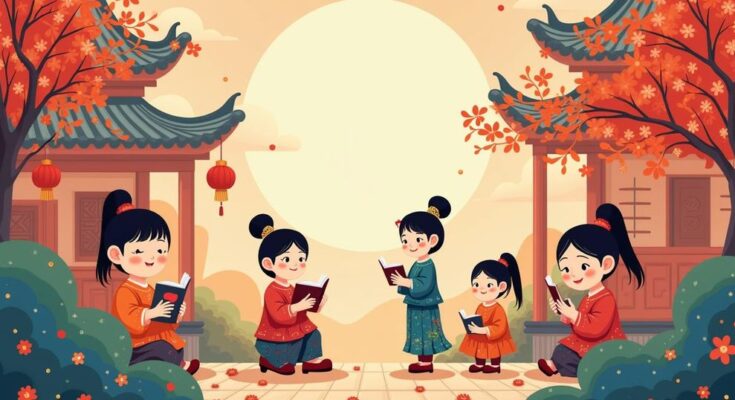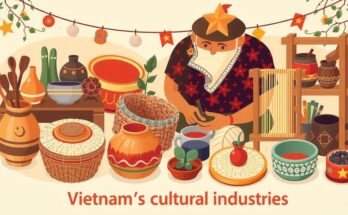The 2024 UNESCO Confucius Prize for Literacy celebrated its laureates during the China (Qufu) International Confucius Culture Festival. Recognizing exceptional contributions from Egypt, Indonesia, and Nigeria, the event highlighted the importance of literacy as a tool for social progress, resonating with the theme of International Literacy Day that promotes multilingual education. The laureates explored the cultural heritage of Qufu, gaining insights into Confucian philosophy and its role in modern education, while UNESCO emphasized the need for inclusive and adaptable educational policies.
In a vibrant celebration of knowledge and cultural heritage, the renowned UNESCO Confucius Prize for Literacy honored its 2024 laureates during the spectacular Opening Ceremony of the China (Qufu) International Confucius Culture Festival. This year’s accolades were bestowed upon three exceptional individuals from Egypt, Indonesia, and Nigeria, who have profoundly impacted literacy in their respective regions. This grand festivity, organized by the Chinese National Commission for UNESCO along with the Shandong Provincial Education Department, coincided with the theme for International Literacy Day: “Promoting Multilingual Education: Literacy for Mutual Understanding and Peace.” The ceremony was a rich tapestry of learning, showcasing the belief that literacy is a cornerstone for social progression and global unity. Among the highlights was a heartfelt video address by Ms. Stefania Giannini, UNESCO Assistant Director-General for Education, delivering congratulations on behalf of Ms. Audrey Azoulay, UNESCO Director-General. In her message, she underscored the urgency for continuous adaptation in educational policies, stating that, “The International Literacy Day celebrations have shown that policies and actions are needed to keep up with these multi-layered transformations, in order to ensure, through an inclusive access to education, a fairer and just society for all.” The laureates, recognized for their pioneering literacy programs, took a poignant journey through Qufu, embracing the rich cultural legacy of Confucian philosophy, which has steadfastly shaped modern education. Visits to the iconic Confucius Temple and participation in the Grand Ceremony of Worship of Confucius offered them deep insights, revealing the philosophy’s enduring influence. The winners of the prestigious literacy prize were highlighted: 1. Egypt: The ‘Illiteracy Eradication Project’ by Mansoura University. 2. Indonesia: The ‘Sokola literacy education for indigenous Indonesians’ program by the Sokola Institute. 3. Nigeria: The ‘FastTrack’ program by the Aid for Rural Education Access Initiative. These programs represent the essence of functional literacy infused with technology, targeting rural adults and out-of-school youth effectively, paving paths to educational equity. The UNESCO Confucius Prize for Literacy, established in 2005 with support from the Government of China, champions such innovative initiatives that breathe life into the quest for knowledge and self-empowerment.
Literacy remains one of the most crucial foundations upon which development is built. The UNESCO Confucius Prize for Literacy was born out of a need to recognize transformative literacy programs that operate within the nuances of modern technological demands. By highlighting effective projects that uplift marginalized communities, UNESCO not only encourages educational innovation but also fosters global dialogues aimed at improving literacy rates worldwide. The 2024 milestone echoes the ongoing battle against illiteracy and highlights the significance of multilingual education in cultivating peaceful societies. The choice of Qufu as a backdrop enriches this narrative, as Confucius’ teachings deeply intertwine with educational philosophies that prioritize moral integrity and collective harmony.
The celebration of the 2024 UNESCO Confucius Prize Laureates was more than just an award ceremony; it was a vital affirmation of the power of literacy as a transformative force within society. By acknowledging the groundbreaking efforts of individuals from Egypt, Indonesia, and Nigeria, UNESCO shines a light on the importance of fostering educational initiatives that embrace technology and inclusivity. The influence of Confucian philosophy in modern education reminds us that the journey towards literacy is a shared responsibility, driven by a collective vision for a more equitable and enlightened world.
Original Source: www.unesco.org



